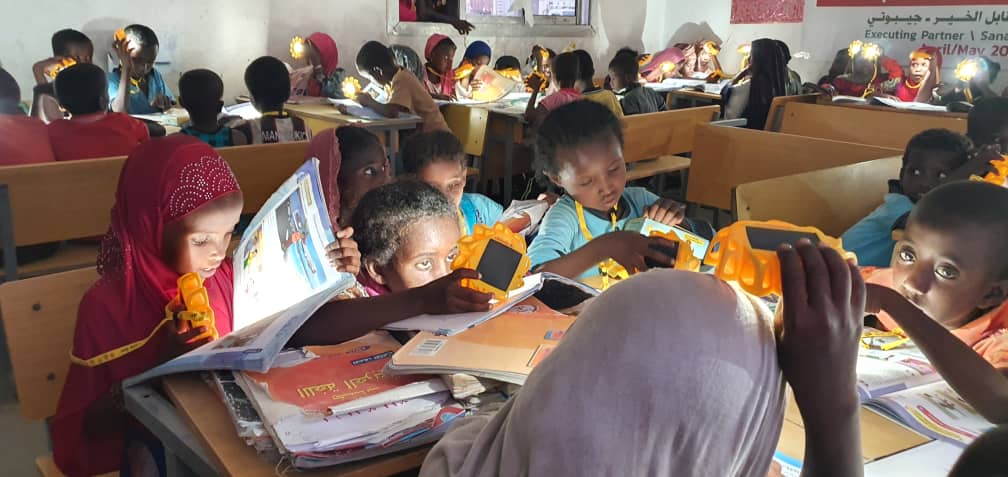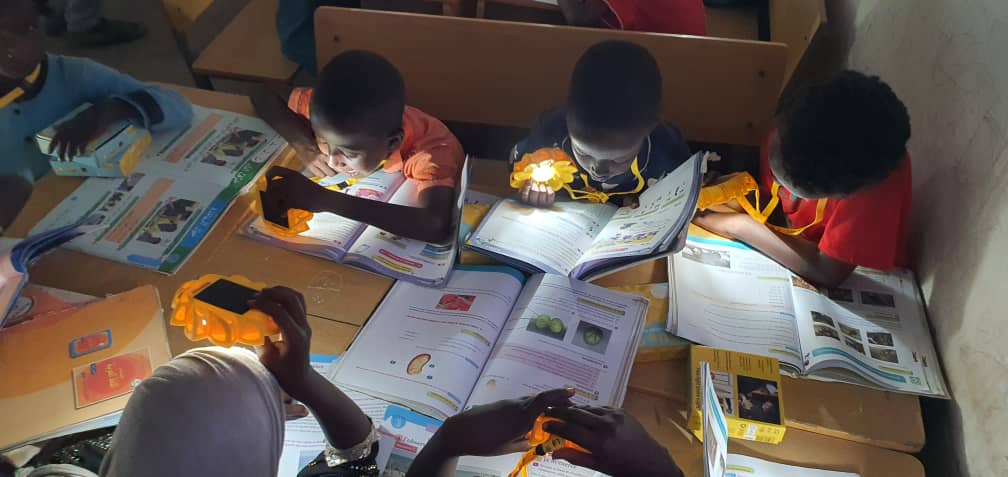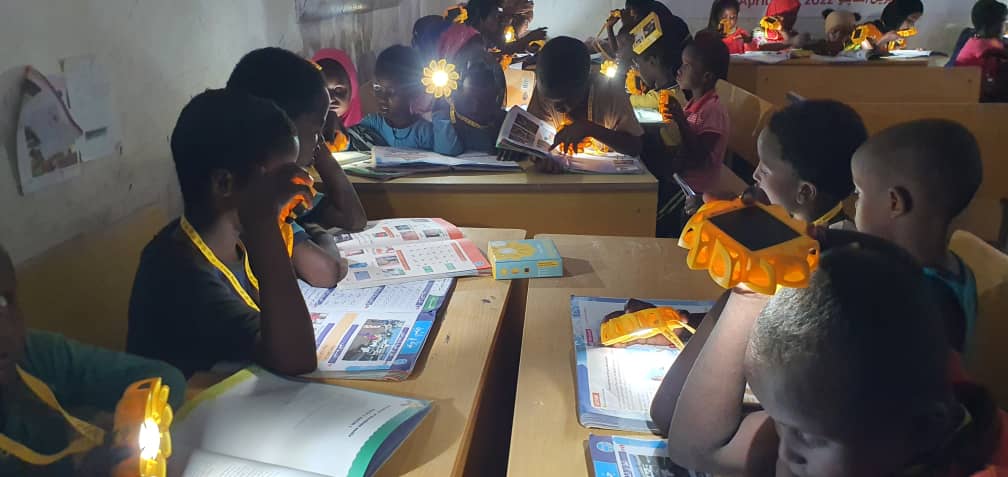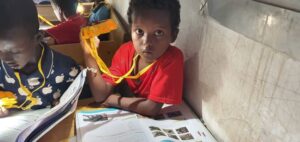WHAT WE DO
Solar Lampsfor School Kids
£20 can give a child a lamp to read, study and find his way after dark.
Current Appeal
Kids from poor communities in Djibouti are studious and hungry to learn.
They want to do their homework and read after dark. But without access to electricity, they don’t have the luxury of simply turning on the lights when the sun sets.
At Kafel Aid, we give solar lamps to school kids, providing them with a renewable energy light source to read and study with in the evenings.
Story of Success
AHMED’S SUCCESS
Ahmed enjoys school a lot more now that he has a solar lamp. He’s on top of his lessons, participates frequently in class and is proud of his improved performance.
Ahmed lives in a rural village in Djibouti. Previously, he wasn’t able to do his homework or complete school assignments because the households in his community have no electricity. At home, Ahmed’s family relies on candles and kerosene lamps after dark. This hindered Ahmed’s ability to study, which was a shame for such a bright boy.
But all that’s changed now. Ahmed’s lamp has a renewable source of energy, which means he can do all he needs after sunset without cost or having to rely on electricity. The ability to study at home and prepare for lessons has improved Ahmed’s grades and given him confidence at school.
Current Appeal
HOW WE WORK
Poor communities in Djibouti have little or no access to electricity. The supply of energy in the region is often unreliable and unaffordable for many. The impact is especially felt in the education sector, with kids unable to learn after sunset.
Our Solar Lamps project provides a cost-effective and sustainable solution. With solar-powered lights, we’re able to foster a culture of sustainable development and encourage people to adopt renewable energy technologies. In this way, people don’t have to rely on traditional energy sources which are limited in availability, potentially hazardous and also contribute to pollution.
To date, we’ve provided 504 children from low-income families with solar-powered lamps to aid them in their studies.
Story of Success

Amina’s Nights and Future are Brighter
Solar-powered lighting was a game-changer for Amina and the other students in her village, enabling them to pursue their education and achieve their goals.
Before, young Amina’s academic life was challenging for many reasons. She’d be busy with chores after school and only had time in the evenings for homework and studying. However, since there was no electricity in her village and because her family could not afford lighting solutions for the nights, she could not do her homework or catch up on revision.
But all this changed when we distributed solar-powered lamps to families in Amina’s community. This rechargeable and sustainable light source gave her a few extra hours of light every evening, allowing her to study on her own, revise her lessons and complete her homework tasks. It’s made a huge difference to her academic performance – her grades have improved significantly, and her teachers are very happy with her progress.
Amina’s self-confidence has grown alongside her improved results. Now she has big dreams and hopes for a brighter future for herself and her family.
Story of Success

Hassan’s Future is Lit
Hassan is a dedicated student from a remote village in Djibouti, who only wanted to work hard at school so he could achieve success later in life. But there were many obstacles in his way, the worst of which was not being able to study at night. This was because there was no electricity in his village and other sources of lighting were unaffordable for his family. When the sun set, he was forced to stop his schoolwork as he could not see to read or write.
However, all this changed when Kafel Aid provided the community in his village with solar-powered lamps through our Solar Lamp Distribution Project. This changed their lives for the better. Now they could continue working, playing or doing whatever they wanted to at night because they could light their homes.
Hassan’s academic life took a turn for the better because the extra time with his books resulted in an improved understanding of his subjects and increased participation in class. His monthly exam scores improved, and he has become a much better student overnight.



